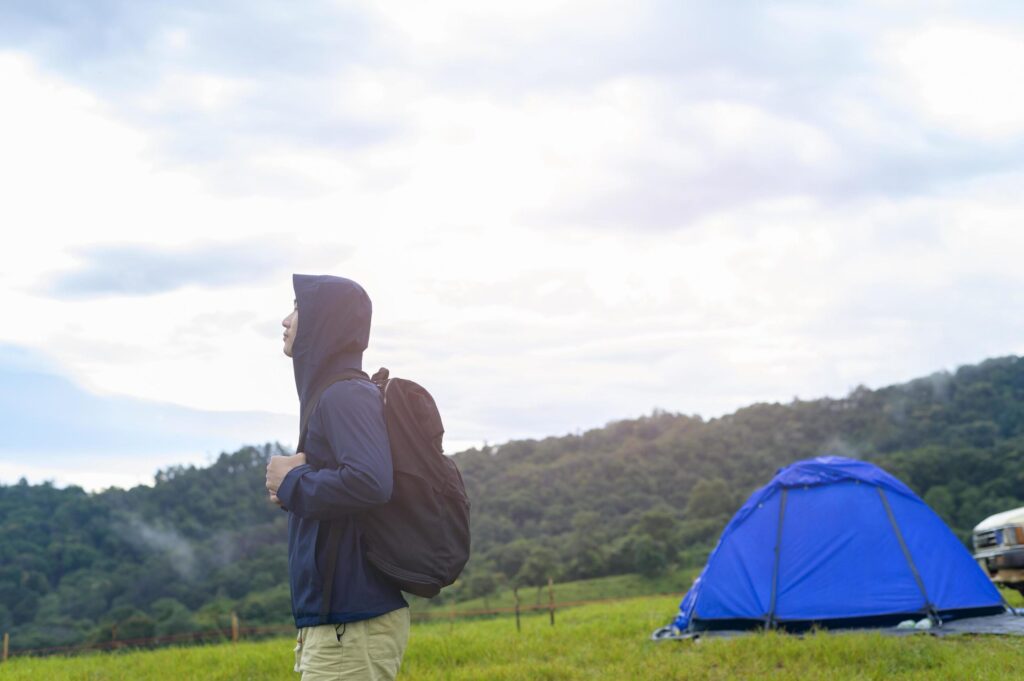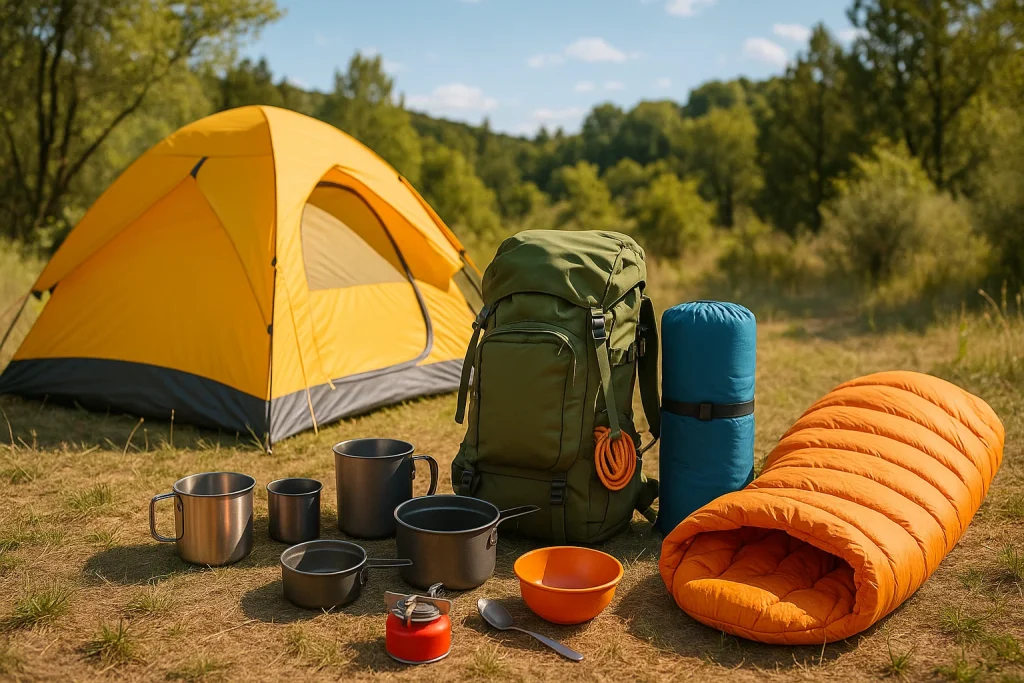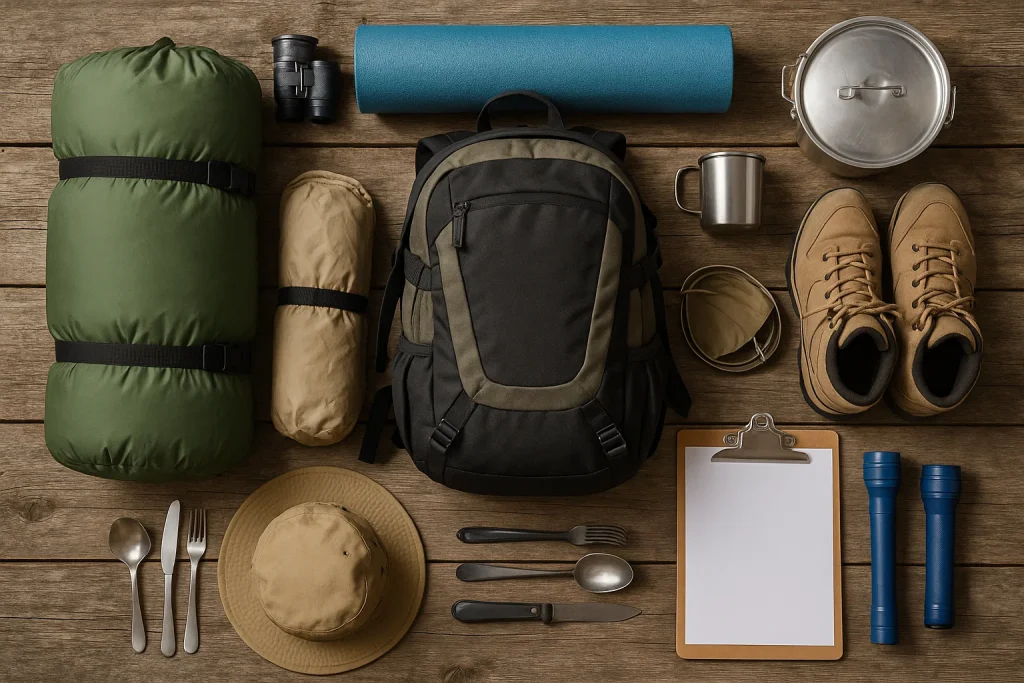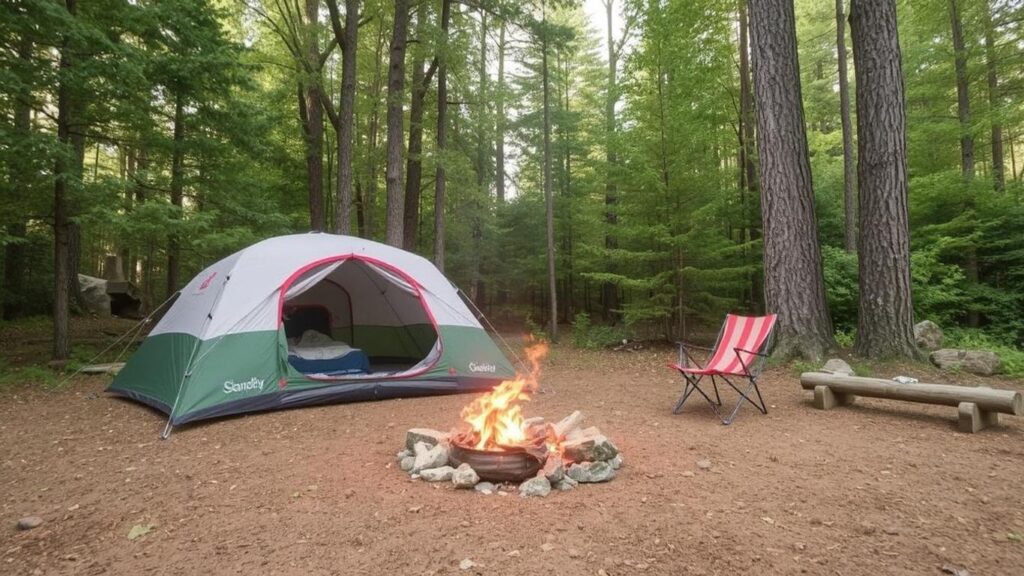How to Plan for the Ocean
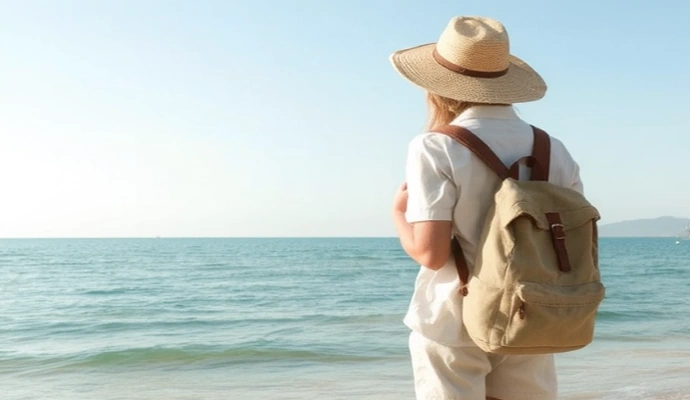
Have you ever dreamt of spending a day at the beach, feeling the saltwater breeze, and watching the waves crash against the shore? For many of us, the ocean is a place of relaxation, excitement, and wonder. But whether you’re planning a weekend getaway or a long-term coastal adventure, proper planning is key to making the most of your time by the sea.
As someone who loves escaping to the ocean, I’ve learned that careful planning makes all the difference between a stressful trip and an unforgettable experience. In this guide, I’m sharing everything you need to know about how to plan for the ocean, so you can enjoy every moment by the water without the hassle.
Why Planning for the Ocean is Essential
I’ve had my fair share of impromptu beach trips, and while some turned out great, others didn’t quite meet expectations. From forgetting sunscreen to underestimating the tides, these small mistakes can make your time by the ocean less enjoyable. That’s why planning is crucial—it not only ensures you’re prepared, but it also allows you to maximize your time and make the most of the natural beauty around you.
Whether you’re visiting the ocean for relaxation, outdoor activities, or even a family vacation, a little preparation goes a long way. So, let’s dive into the essential steps for planning a stress-free and memorable ocean experience.
Step 1: Choose the Right Ocean Destination
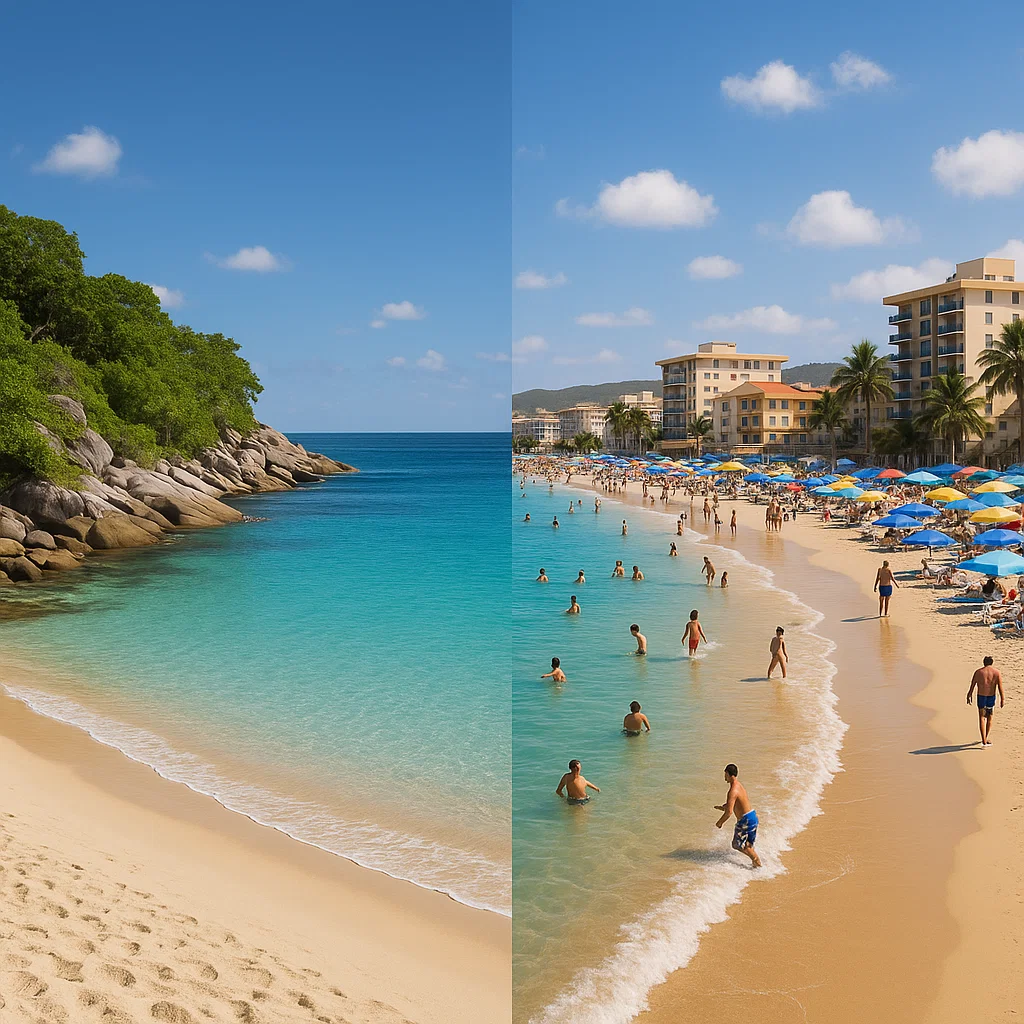
The first step in planning for the ocean is deciding which coast, bay, or beach suits your needs. There are so many beautiful coastal areas, each with its own charm. Do you prefer relaxing on quiet, secluded shores, or are you looking for more action-packed beach towns?
Here are a few things to consider when choosing your destination:
- Type of Experience: Are you after a serene escape or an adventure-packed trip? Some beaches offer calm waters for swimming, while others are known for surfing, kayaking, or even whale watching.
- Travel Distance: How far are you willing to travel? If you’re planning a quick weekend getaway, you might want to stick to a beach close to home. But if you’re planning a longer vacation, you might want to explore coastal areas that are further away.
- Facilities and Amenities: Make sure the area you choose has the amenities you need, such as nearby restaurants, accommodations, and safety measures (lifeguards, first aid stations, etc.).
Once you’ve identified the type of experience you want, it’s time to start planning for the practical aspects of your trip.
Step 2: Pack the Essentials for a Beach Day
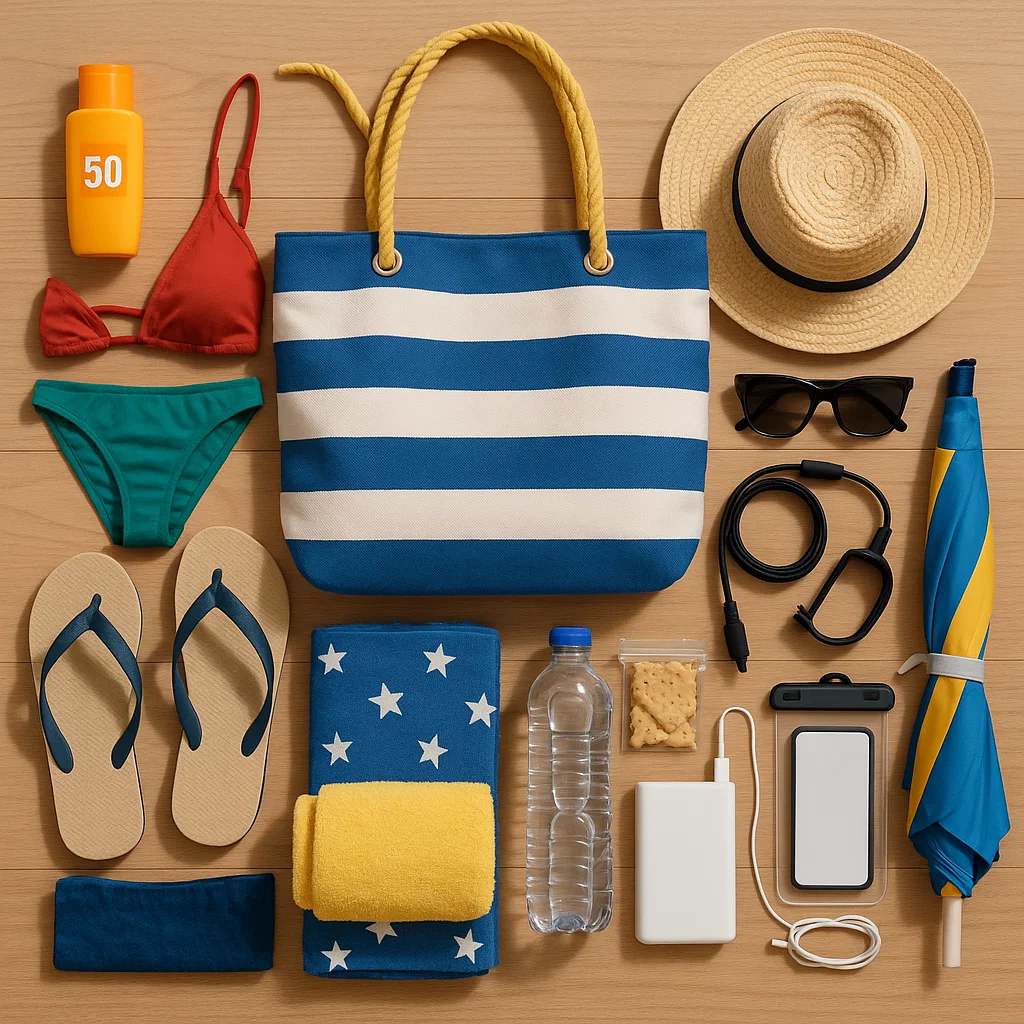
Packing for a day by the ocean isn’t as simple as throwing on a swimsuit. Depending on the activities you plan to do, you’ll need a few essentials to make your time at the beach comfortable and enjoyable.
Here’s a checklist to get you started:
- Sunscreen: Protect your skin with a high SPF sunscreen. Remember to reapply every two hours, especially if you’re swimming or sweating.
- Swimwear: Whether you prefer bikinis, board shorts, or one-pieces, make sure your swimwear is both comfortable and stylish.
- Towels and Beach Blankets: Bring a large towel or blanket to sit on, and extra towels for drying off after a swim.
- Snacks and Water: Stay hydrated by bringing plenty of water and snacks, especially if you’re going to be spending the whole day at the beach.
- Footwear: Flip-flops or sandals are essential for walking on hot sand, but if you plan to go on a hike or explore rocky areas, bring sturdy shoes.
- Protective Gear: Don’t forget a hat, sunglasses, and a beach umbrella for shade if you want to avoid sunburn.
- Water Sports Gear: If you’re planning on doing activities like surfing, paddleboarding, or snorkeling, make sure you have the necessary equipment.
Tech Essentials: Don’t forget practical tech items like a waterproof phone case, dry bag for valuables, and a portable charger (power bank) to keep your devices charged while on the go.
Step 3: Understand the Ocean’s Tides and Weather
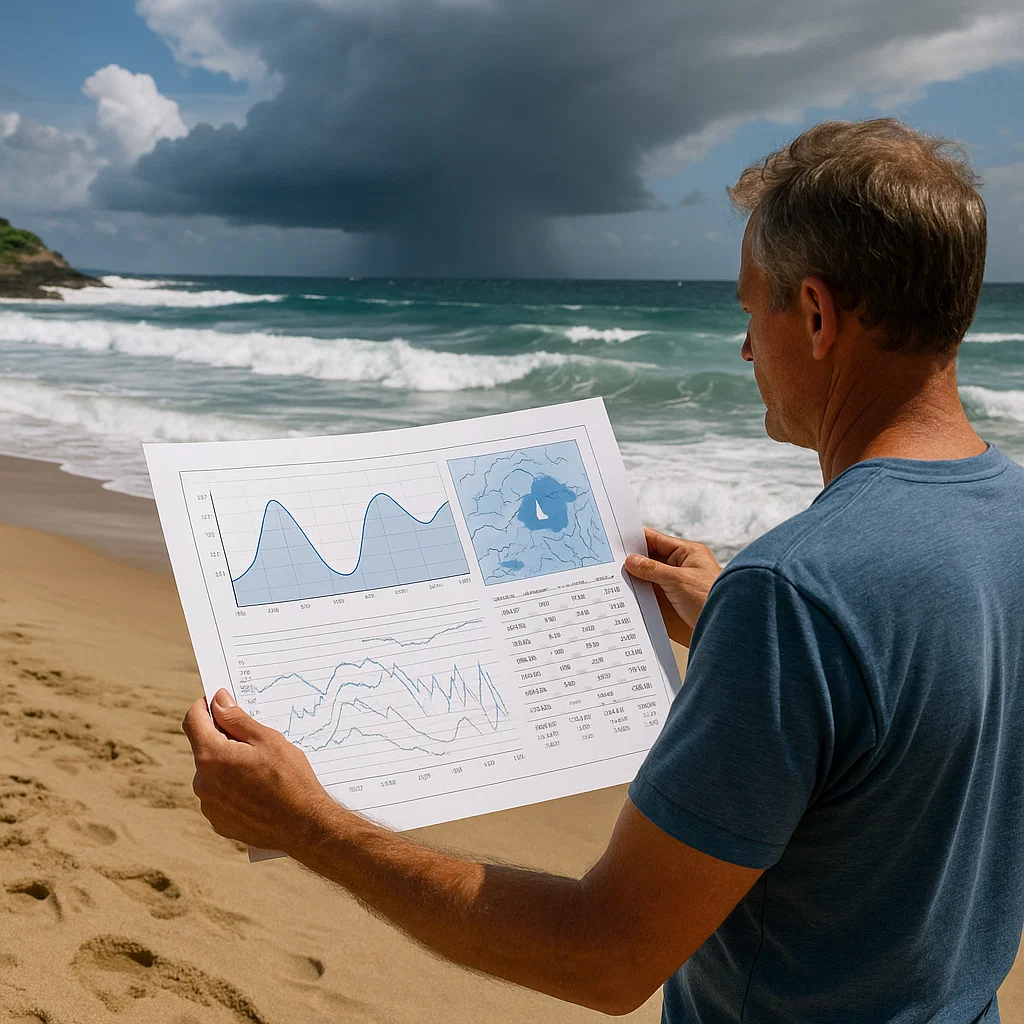
The ocean is a dynamic environment, and understanding its tides and weather patterns can make your trip safer and more enjoyable. Here are some things to keep in mind:
Tides
- Tidal Schedules: The timing of the tides affects water activities like swimming, surfing, and beachcombing. If you’re planning to surf or swim, check the local tide charts to know when the water will be at its highest or lowest point. High tide may mean the beach is smaller, while low tide exposes more of the shoreline.
- Safety: Strong rip currents and waves can be dangerous, especially during high tides. Always check local surf reports and heed lifeguard warnings.
Weather
- Check the Forecast: Coastal weather can change quickly. Before heading out, always check the weather forecast to avoid any surprises, like a sudden storm or strong winds.
- Wind and Storms: High winds can make beach days uncomfortable or even dangerous. Be prepared by checking the forecast for wind conditions, especially if you plan on doing water sports.
Step 4: Plan Your Activities
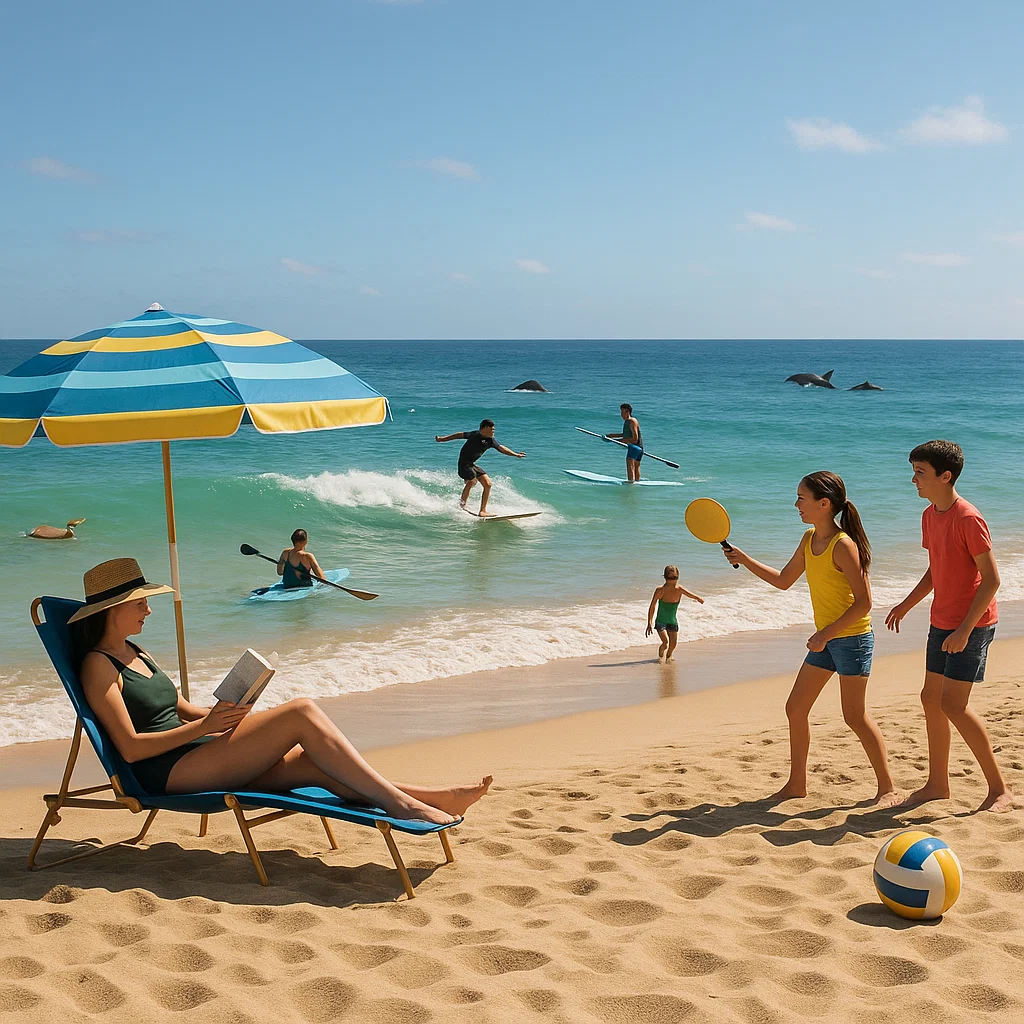
The ocean offers a wide range of activities, from relaxing on the beach to engaging in thrilling water sports. Here are a few options to consider for your beach day:
- Relaxing by the Water: Sometimes the best way to enjoy the ocean is simply by sitting back, listening to the waves, and soaking up the sun. Bring a good book, or simply take a nap under your umbrella.
- Water Sports: For adventure seekers, activities like surfing, paddleboarding, kayaking, and snorkeling are perfect ways to immerse yourself in the ocean.
- Exploring Coastal Wildlife: Some beaches offer fantastic opportunities for wildlife watching. If you’re lucky, you might spot dolphins, sea turtles, or migratory birds. Check out local guides or join eco-tours to learn more about the area’s wildlife.
- Beach Games and Family Fun: If you’re with family or friends, consider packing a volleyball, frisbee, or paddleball set for some fun on the sand.
Step 5: Safety First
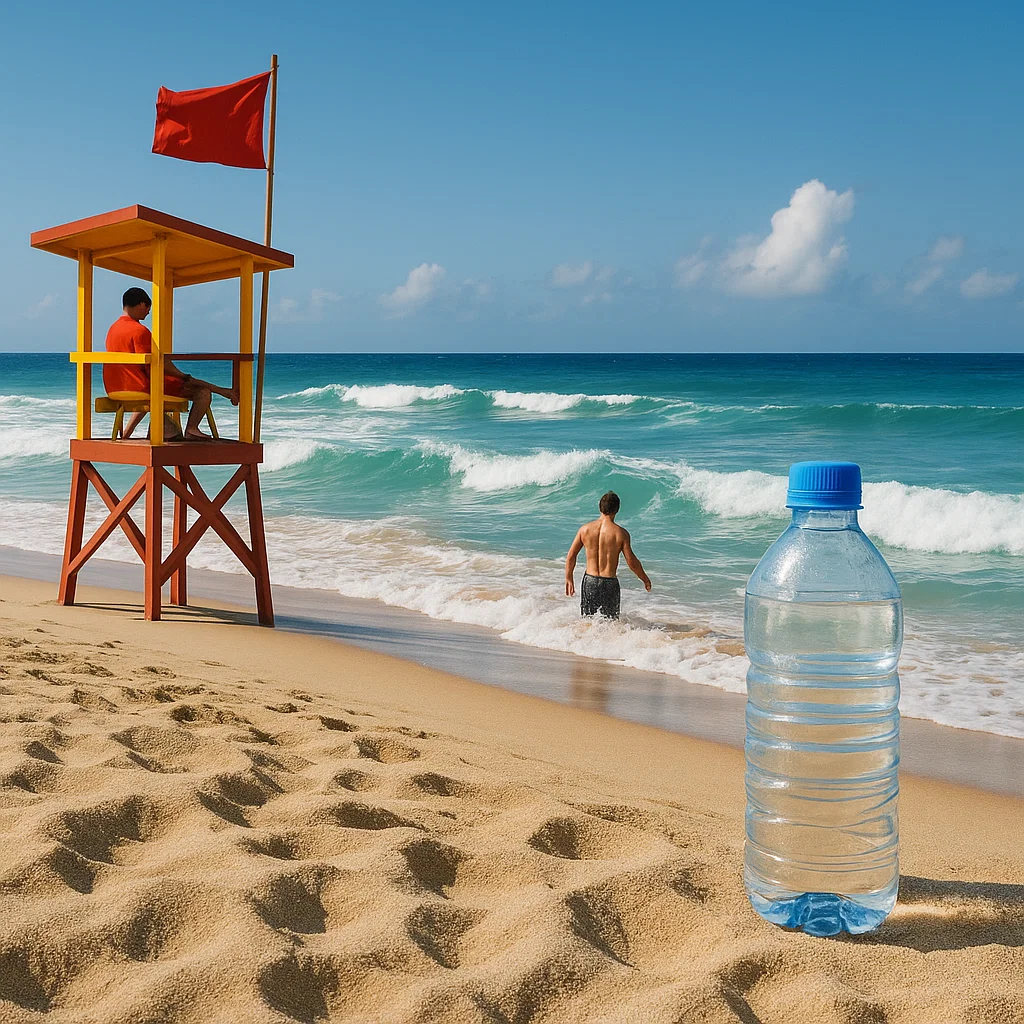
While the ocean is a beautiful place, it can also pose risks. Here are a few tips for staying safe while enjoying the coast:
- Lifeguards: Always swim in areas monitored by lifeguards, especially if you’re unfamiliar with the local conditions.
- Watch for Rip Currents: Be aware of rip currents, which are strong water flows that can pull swimmers out to sea. If caught, swim parallel to the shore to escape.
- Stay Hydrated: The sun and saltwater can dehydrate you quickly, so make sure to drink plenty of water throughout the day.
Step 6: Be an Ocean Protector – Leave No Trace
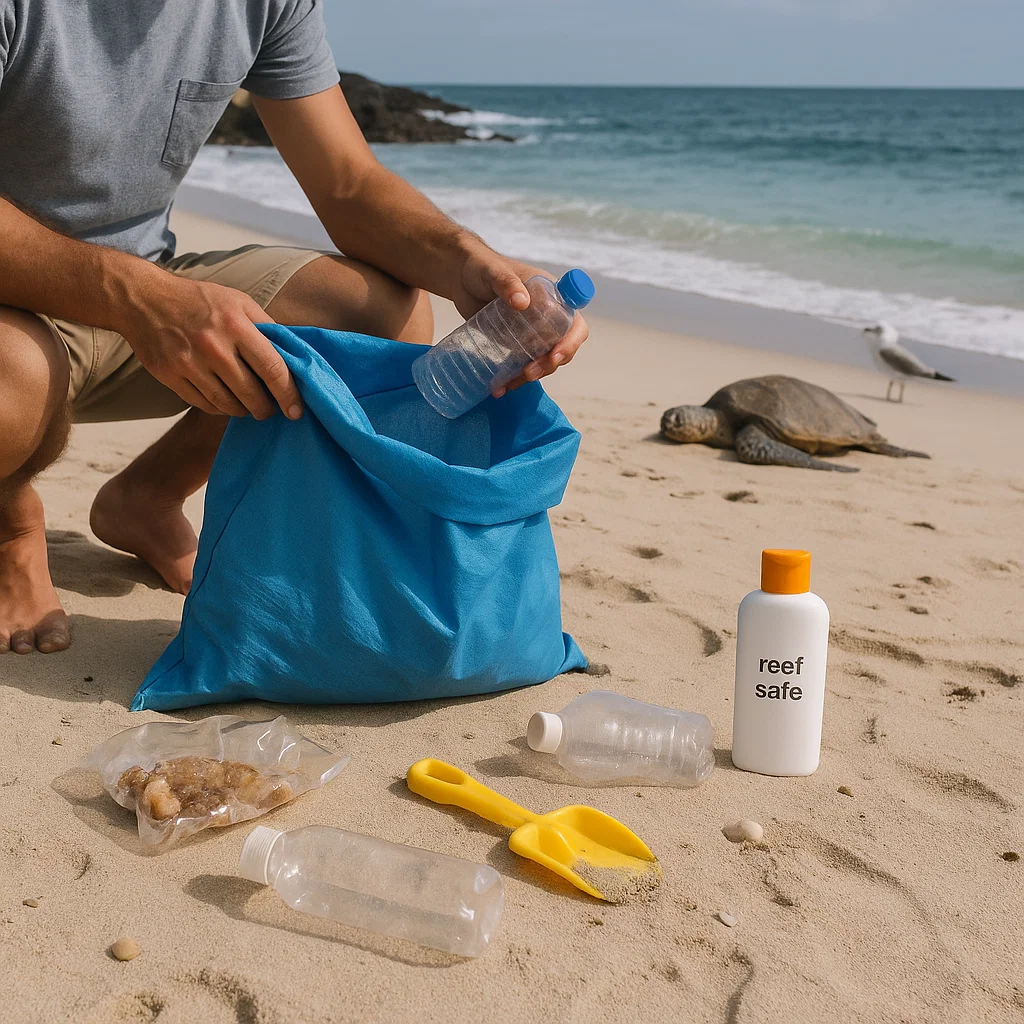
As we all enjoy the ocean, it’s crucial to protect it for future generations. Here are a few key points to keep in mind to make your visit environmentally responsible:
- Trash Management: Follow the “leave no trace” rule. Whatever you bring to the beach, make sure you take it back with you—this includes food wrappers, bottles, and beach toys.
- Coral-Safe Sunscreen: Choose reef-safe sunscreen that’s free from harmful chemicals like oxybenzone, which can damage coral reefs and marine life.
- Wildlife Respect: Maintain a safe distance from coastal wildlife, such as birds, sea turtles, and seals. Never touch or disturb them, and always follow local guidelines to protect the animals.
Frequently Asked Questions (FAQ)
Q: How do I find the best beach for water sports?
A: Research local beaches known for water activities like surfing or paddleboarding. Check with local rental shops or tour operators for recommendations.
Q: What’s the best time to visit the beach?
A: Early mornings or late afternoons are ideal for avoiding the midday heat and crowds. Plus, you’ll get the best views of the sunrise or sunset.
Q: How can I make the most of my beach day if it’s cloudy?
A: Even on cloudy days, the beach can be fun. Bring a light jacket, enjoy the ocean breeze, and focus on activities like beach games or a coastal hike.
Conclusion: Make the Most of Your Ocean Adventure
Planning for the ocean doesn’t have to be complicated—just a little research, preparation, and knowledge about the tides and weather will make your coastal adventure unforgettable. Whether you’re relaxing in the sand or diving into thrilling water sports, you’ll be able to enjoy every moment with confidence.
So, grab your gear, check the forecast, and get ready to immerse yourself in the beauty of the ocean. Your perfect beach day awaits!

